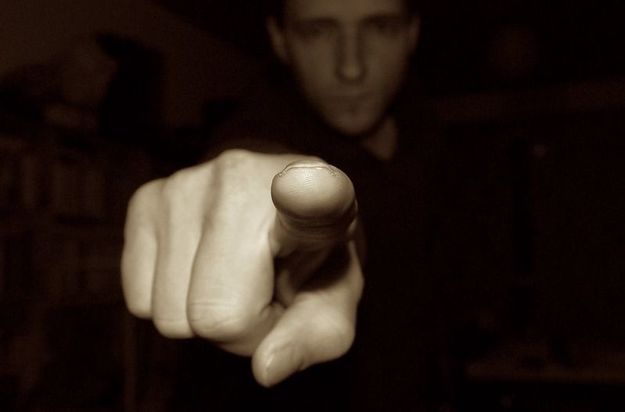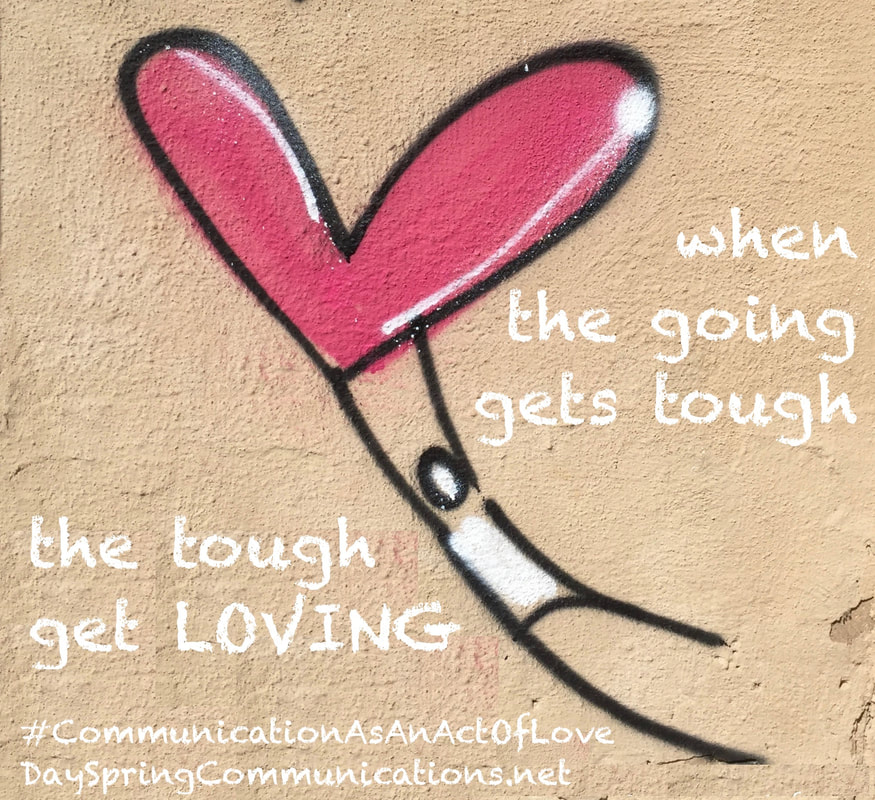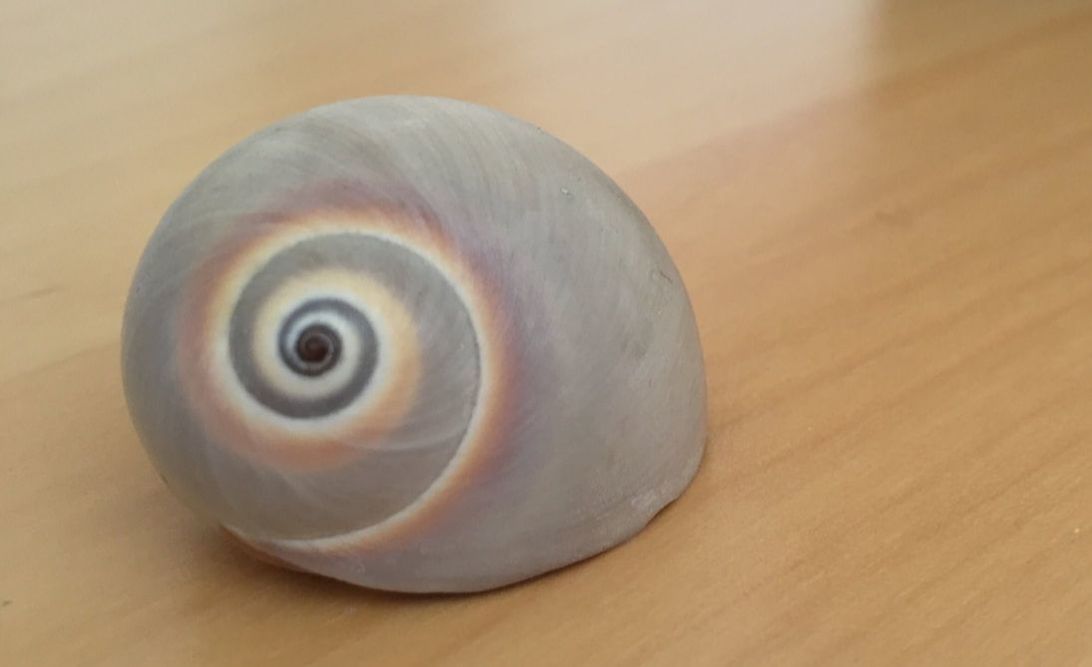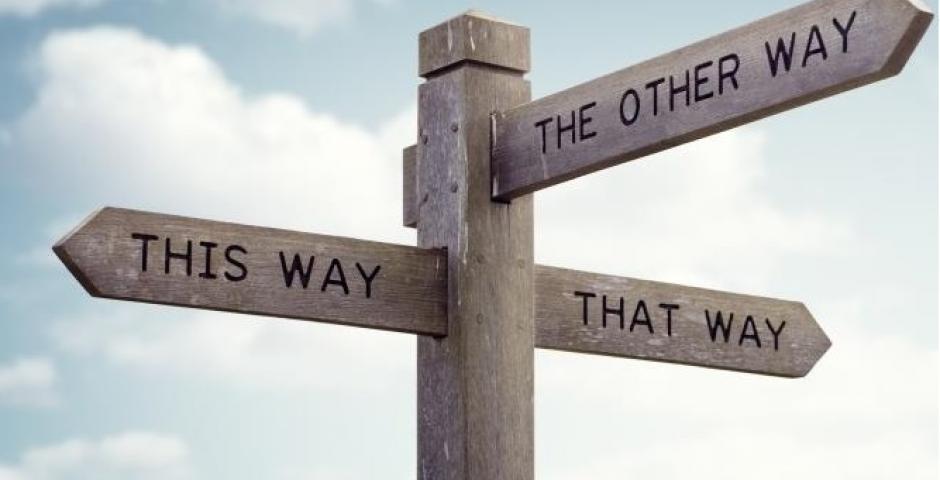|
The first time the poetry class met, Madame Inez passed around a small, velvet, drawstring bag and invited each student to reach in and blindly select one of the items inside.
With eyes closed we came to know our chosen objects by touch. She instructed us to slow our breath and make our movements very small in order to become present with the strange items that we held in our hands. We were a class of 20-somethings in a kind of meditative state adoring things from acorns to orange rinds. Madame Inez had a huge collection of these techniques, and she spent the semester using them to send us into far-flung corners of our hearts and imaginations. With skill, patience and a little coaxing, she sought to draw out the variety, color and truth of our poetry. My poetry wasn’t necessarily “good,” but that doesn’t seem to be what mattered. What was important was how the practices and assignments led me to parts of myself that were as-yet undiscovered, and then offered me a way to give voice to what I found there. I wrote poems about sexuality, drugs, and the 1991 version of gun violence. I wrote about Greek myths and road trips. I wrote with humility to honor Native American people and their pride. Under the wise and loving guidance of Madame Inez, I discovered the voice that helped me stake my claim as a young woman finding her way in the world. I found my way into a more fully expressed version of myself. And this is the thing about communication. Whether you’re writing poetry or press releases, the way you communicate has an impact on how you experience life. Communication is at the core of every relationship, and relationships are the connective tissue of life. Your communication can never be separated from the totality of who you are – an emotional, physical, intellectual and spiritual being. And when we drop into communicating with our fullness, our essence, our inner poetry and truth, this has a material impact on our relationships, our work and our lives. So how, in a non-stop world where pressure rules and poetry is so little read (let alone written), how do you harness the power of communication as an expression of your best self? You treat communication as an act of Love. Are you still reading? Did the “L” word make you bristle or cringe a bit? Do you feel kind of uncomfortable or vulnerable with where I’m going? I hope you’ll stay with me. You already know that Love – present in every aspect of life – is the lifeblood all of our relationships – ALL our relationships – the ones we have at home, at work and at play. And, because relationships and communication are inextricably linked, when we talk about communication, we must talk about Love. There’s just no way around it. When you start to embrace communication as an act of Love, you bring more integrity, power and cooperation to every aspect of your life. You start to shift the bedrock of how things happen. You start to see how tuning, improving and practicing Authentic Communication can make everything about work work better and life unfold with less effort and more clarity. You create more transparency with productive, creative, thriving collaboration. You express your highest and best self in every environment. You get things done with ease and joy. You get real about your humanity – about being a person who has feelings and seeks ways to relate to other people who also have feelings. When you embrace communication as an act of Love, you launch yourself into a fuller and more authentic expression of yourself – clear and true. On that first day of Madame Inez’s poetry class, the item I pulled from the bag was the shell of a moon snail –slate gray with a rainbow-colored spiral circling in on its eye. It was such a pretty thing that I asked if I could take it home. Today I keep it on my bedroom dresser – a daily reminder of the care of a beloved teacher and that my communication is most powerful, effective and even effortless when it comes from my heart – when it is an act of Love. -- “Eking Out the Voice” is the name of the collection of poems that I wrote in Madame Colette Inez’s poetry class at Columbia University in 1991. I am humbly grateful for the profound influence she had on my life. Madame Inez died in early 2018. A couple of years ago I went for a hike with two of my very dearest friends. I was looking forward to a day in the mountains with these people who I love and trust completely, enjoying some spectacular nature and stimulating conversation.
This was around the time that I was starting my new business as a communications consultant and coach. Authentic Communication, which had been a nascent idea for many years, was finally coming into being. It was an exciting and tender stage for me, and I looked forward to talking to my friends about what was happening with me and my work. While the details of my new business were still coming into focus, I already had a lot of clarity around the vision and mission of my work. During our hike I shared that one of my financial goals was to dedicate a percentage of my income to charitable giving. When my two friends heard my plan to systematically give away a chunk of my income, they began to ask questions about my rationale for this decision. The thing is that, this isn’t a rational decision. It’s a choice I make from my heart and a practice that I’ve engaged in for most of my life. It’s just part of how I operate. They inquired with sincerity about my motive and intention. It seemed like my responses somehow weren’t satisfying. The questions kept coming. Despite my friends’ unquestionable love for me, I began to feel like I was being interrogated. And they found themselves repeating what they’d said because I didn’t seem to get it. I started to feel overwhelmed, and I asked for the conversation to pause so we could walk in silence. What started as a fresh and beautiful day with closer than close friends had collapsed into disconnected despair. So, what the heck happened? We. Were. Not. Listening. We all heard each other’s words, but, in that moment, and on that subject, we were unable to tune into their true meaning. Yes, we were trying to understand each other, but we were also trying to convince each other, to change each other’s minds so that we could come to some kind of agreement, when, actually, there was no agreement to be had. All of us had become entrenched in our own points of view on this very personal topic. We were unable to receive each other’s messages without wanting to bring them into greater alignment with our own. If listening can fall apart among really close friends on a leisurely hike in a spectacularly beautiful place, how much more likely is it that we fail to listen in the high-pressure environments in which we usually operate? And the consequences of our listening deficiencies can be more serious than a disappointing afternoon in the woods. I even have to wonder if a chronic failure to listen contributes to the loneliness epidemic in the U.S. In my career as a professional communicator, I learned the hard way that lack of listening skills could not only compromise my team’s efficiency, it could also jeopardize my role as a leader and even create reputational risk for my employer. Without deep listening in my marriage, my husband and I can spiral into an intractable power struggle. I believe intentional listening helped rescue us from a critical time when our future as a couple was in question. We’ve learned that deeper listening releases tension and helps us experience more intimacy, peace and joy. It’s also a tool that helps me navigate the political differences in my family. Despite our opposing points of view, through skilled listening, I can help ensure our time together doesn’t end in an argument. In all areas of my life, when I make the effort to listen with empathy, openness and even humility, I reap the benefits of less friction, deeper connections and more ease. Listening is simple, but it's not easy. We all think we do it, but do we, really? The good news is that you can learn to be a better listener. There are specific listening skills that, when put into practice, open a world of possibility for how you communicate. When you meet life with intentional listening, you unblock creativity, increase your efficiency, de-escalate conflict, release tension, and solve problems. You connect more deeply with others and yourself. You get even more out of your daily interactions and those precious days of adventure with people you love. I hope you’ll join me for my next webinar to learn more. I’d love to listen to you. -- WEBINAR: I Can Hear You Now: Why Listening Really Matters and How to Do It Better Tuesday, October 23 * 7-8 p.m. US ET Via Zoom $20 Register here. If you can’t join the webinar live, you’ll be able to access the replay to enjoy at your convenience.  Photo Credit: PublicDomainImages / Pixabay When I was in my early 20s, I was head over heels for a photographer named Christopher Bailey. With wavy blonde hair and a big laugh, Christopher was not only creative and rebellious, he was also make-my-heart-skip-a-beat handsome. He was several years my senior, drove a little too fast, and took me to corners of the city that I didn’t know existed.
I thought Christopher and I were evidence that opposites attract. I grew up in a rather sheltered, definitely preppy corner of New England. I wore pink and green Lacoste shirts with the collars turned up. He wore his uncle’s leather jacket and had a friend with a pet leopard. Really. Opposites, though, don’t always stay attracted. After a few months, Christopher’s attention began to stray. Our dates became less frequent. He no longer wanted to hang out with my roommates. And one day, he gently broke up with me using a line that, at that time, was new to me. “It’s not you,” he said. “It’s me.” I know. It’s a cheesy break-up line. But, as I’ve navigated relationships in the three decades since that heartbreak, I’ve learned the truth of Christopher’s cliché. When that sentiment, if not the exact words, is uttered with sincerity and even humility, it’s possible to convey honesty, integrity and personal responsibility. So I found it surprising when someone who sells coaching services recently turned this phrase on its head and said, “It’s not me. It’s you.” This coach and I had been talking about relationships – a topic that’s endlessly fascinating to me and deeply entwined with my work in Authentic Communication. The way I see it, being in relationship is among the highest expressions of our humanity. It doesn’t matter if the relationship is with your spouse or your co-worker, your daughter or your accountant, your BFF or your barista. Every relationship is a dance in which we create connections, exchange ideas, share insights, explore what it means to be alive. It’s a source of opportunity to probe more deeply into the questions that orbit our existence. It’s a chance to come to know some as-yet-undiscovered part of ourselves. When Christopher Bailey showed me how to eat Ethiopian food with my hands, I learned something about myself that would not have been available to me otherwise. Sitting on the floor, I plunged my fingers into the doughy flatbread and used it to scoop up garbanzos, beef and chicken that held tastes and textures I’d never before known. Laughing as I ate, a part of me that was previously dormant came into being. Relationships ignite life. They make it as rich and juicy and exciting as an Ethiopian meal in Adams Morgan on a summer Friday night with a new beau. And all relationships need care and tending. They need attention. They’re cultivated through communication. Because communication itself is radically relational, relationships thrive when communication is clear, consistent and true. Authentic Communication is possible when we take personal responsibility for ourselves – for the way we show up, for our presence or lack thereof, for our choices and behaviors. We are privileging our relationships, the vibrancy of life and the very nature of love when we practice rigorous honesty, when we admit our part in whatever pain we suffer and whatever joys delight us. So, when this coach recalled the demise of a relationship of his own, what surprised me was how clear he was about who was at fault. “It’s not me,” he had told his former partner. “It’s you.” I don’t know the full story here – how could I? – but I know the ripple effect of blame. It gets in the way of being accountable for my own behaviors. It blocks the chance for deeper connections and thriving relationships. It’s not a great hallmark for a coach. When we take responsibility, we get grounded in reality. Deep roots of honesty prepare us for the buffeting changes and break-ups that life will inevitably send our way. Personal integrity and self-awareness are starting points for radically relational and fully authentic communication that nurtures all our connections, revealing new and unexpected surprises that bring rich color and subtle nuance to this one, good life. If you’re looking for a coach – someone to challenge your assumptions about the world, to introduce you to new delicacies that were formerly unknown to you, and to help you open to greater possibilities in your life – do your research. Choose someone who is trained, experienced and might risk being cliché but is certainly sincere. Choose a coaching partner who is not afraid to say, “It’s not you. It’s me.” And who might encourage you to do the same. There are so many wonderful coaches out there. If you would ever like to explore coaching work with me, I’d be humbled and delighted to hear from you. Please be in touch. |
MusingsHere you'll find some of my thoughts about communication, contemplation, yoga, life and various other topics. Thanks for giving them a read. Archives
February 2022
Categories
All
|



 RSS Feed
RSS Feed